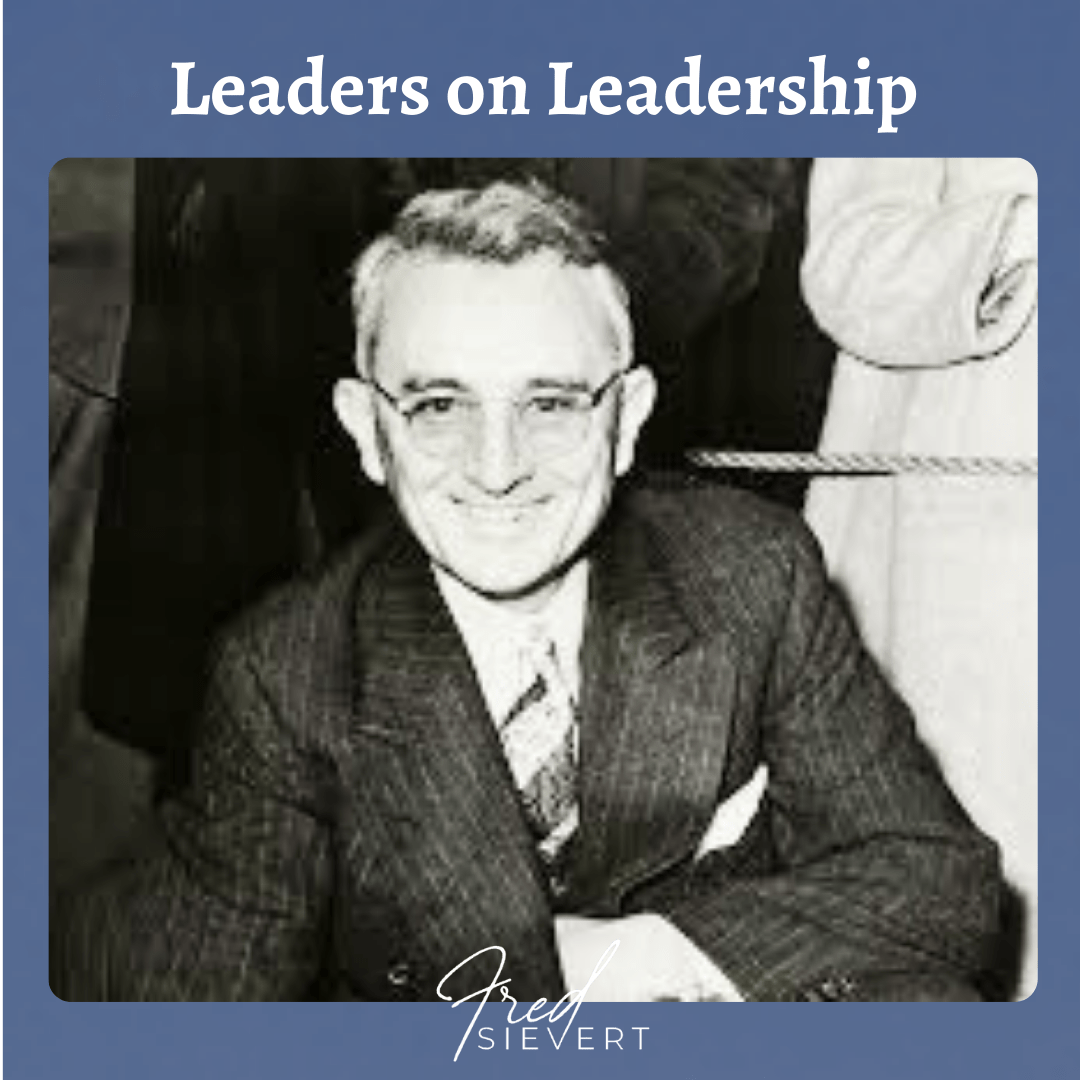Dale Carnegie: Pioneer of Leadership and Personal Development
Dale Carnegie’s book, How to Win Friends and Influence People, had a very significant impact on me during my educational years in high school and college. Following the practical advice and the principles in the book greatly enhanced my ability to take on leadership roles not only on athletic teams but also in other academic and social pursuits. Then in my early years in business, I took a Carnegie course on leadership and public speaking while working at an insurance company in Detroit. I am certain that the insights gained from that course enabled my rapid advancement to greater management and leadership roles for much of my career.
Here is some brief biographical information on Dale Carnegie:
Dale Carnegie (1888–1955) was a celebrated author, speaker, and pioneer in self-improvement, corporate training, and interpersonal skills. Carnegie developed a deep interest in public speaking and human relations early in life. After graduating from State Teacher’s College in Warrensburg, Missouri, he worked as a salesman and later as an actor, experiences that sharpened his understanding of human behavior.
Carnegie’s passion for effective communication and leadership led him to teach public speaking classes at the YMCA, where he refined his methods for improving interpersonal skills and building self-confidence. These techniques laid the foundation for his enduring legacy as an authority on personal and professional development.

His most influential works include How to Win Friends and Influence People (1936), a landmark book that has sold over 30 million copies worldwide and remains a staple for those seeking to improve their relationships and leadership skills. Another popular book, How to Stop Worrying and Start Living (1948), offered practical advice on overcoming stress and achieving personal peace. The quotations below are some of my favorites, taken from his writings.
Notable Quotes:
“You can close more business in two months by becoming interested in other people than you can in two years by trying to get people interested in you.”
Carnegie emphasizes the power of genuine interest in others. Building strong relationships through active listening and empathy is far more effective than self-promotion.
“Any fool can criticize, condemn, and complain (CCC)—but it takes character and self-control to be understanding and forgiving.”
Leaders are challenged to practice patience and compassion, as emotional intelligence plays a key role in building trust and effective collaboration. Avoid what Carnegie referred to as the counter-productive CCC’s. This is true not only in our business dealings but applies equally to all of our human interactions.
“Don’t be afraid to give your best to seemingly small jobs. Every time you conquer one, it makes you that much stronger.”
Success comes from consistent effort. Tackling small tasks diligently builds the discipline necessary for larger achievements. I found this to be true throughout my career. As just one example, an earlier blog in this series indicated you should make every presentation a command performance.

“The only way to get the best of an argument is to avoid it.”
Carnegie advocates for conflict avoidance where possible, focusing on finding mutual understanding rather than engaging in fruitless debates. This advice is very timely given the current environment of divisiveness on political issues.
“Inaction breeds doubt and fear. Action breeds confidence and courage.”
He stresses the importance of proactive behavior. Taking initiative leads to confidence, whereas passivity fosters insecurity.
“Be more concerned with your character than your reputation, for your character is what you are, while your reputation is merely what others think you are.”
Carnegie underlines the importance of integrity. True leadership is built on character, not external perceptions.
“If you believe in what you are doing, let nothing hold you back. Much of the best work in the world has been done against seeming impossibilities.”
Persistence in the face of adversity is key to achieving meaningful outcomes. Carnegie encourages leaders to persevere despite challenges. Don’t succumb to the common excuse that, “it can’t be done” or “it has always been done this way”.
“Happiness doesn’t depend on any external conditions; it is governed by our mental attitude.”
Carnegie believes that mindset is essential to personal and professional fulfillment. Leaders must cultivate a positive outlook to inspire themselves and others.
These insights align with Carnegie’s broader philosophy on leadership, which focuses on empathy, relationship-building, and the power of positive thinking.


One Response
Contrary to the old saying…Dale Carnegie is a prophet in his land. I graduated from the same college as Dale. In Warrensburg, MO and what is now the University of Central Missouri, Dale Carnegie is often and well remembered. His principals on relating to people have never changed.
Thanks for posting this.